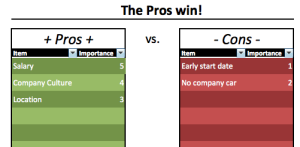
Your professional life becomes way easier and doors open when your reputation precedes you. But to get that point, you have to know how to build a personal brand.
As an online business owner and author, every day I see the benefits of a strong personal brand in the marketplace. Put simply, bigger and better opportunities come out of thin air when people know you and your work.
What I’ve also discovered is reputation is not only important for entrepreneurs and celebrities, but literally every single professional can benefit from a powerful personal brand.
I’m talking about:
- Real estate agents (see how to find clients using Facebook ads for realtors)
- College students
- Actors
- Accountants
- Engineers
- Bankers
- Athletes
- Coaches
- Sales reps
- Teachers
- Hairdressers
- Coaches
- Stylists
And I could go on and on.
We’d all be better off if we watched less television, played less video games, texted less drama, binged less Netflix, and instead blocked off time to build a top personal brand.
Why should you stop all the non-value producing activities and focus your limited time on building a personal brand? Here’s why.
The Power Of A Strong Personal Brand

A job candidate with an established personal brand positions themselves to get their dream job from the start. Maybe they have a strong blog, podcast, or YouTube following, which becomes a unique factor that helps them stand out from the pack.
You can also mention stories and experiences from your personal brand work that make you qualified to succeed in this new job. Odds are the company will be intrigued and impressed.
If you’re looking for a raise or promotion, executing to the best of your ability helps. But what if other coworkers also do that? Then your personal brand can be the separating factor that gives you the nod over the other guy or girl.
And say you want to completely change careers. You can reach out to your audience for assistance in landing your new job in a different field. Or the income from your personal brand can buy you time before you decide what to pursue full time.
In my world, the entrepreneurs with the biggest brand get paid six-figures for a one hour keynote speech, they get features on the top sites, and new business opportunities flock to them without them breaking a sweat.
When authors like Tony Robbins come out with a book, you can all but guarantee it’s making The New York Times bestseller list because of Tony’s fan base.
While I’m nowhere on the level of the people I just described, I’ve definitely seen the firsthand benefits of my growing personal brand through appearing on tv, countless podcast interview requests, and word of mouth. Each of those has helped me move forward professionally or financially.
For example, my blog audience, email list, and social media following helped my three books become bestsellers. With no personal brand, no one is buying those books when they came out then or now.
And I’ve used my personal brand as a selling point to do digital marketing for clients and win rich contracts. Part of the pitch is if I can build a quality personal brand for myself in a few short years starting from nothing, imagine what I can do for your established company.
I could go case study by case study, but trust me when I say my personal brand has paid me more than 10,000 times over. That’s not an exaggeration!
It’s just a fact that building a personal brand pays off down the road in your career. The hard work and patience turns into tangible results regardless of the professional path you follow.
Are you willing to do what it takes? Or whatever it takes? If you want a personal brand that works 24/7 to serve you, here’s what you’ll want to do.
How To Build A Personal Brand
1. Show up
Look, you can’t build a personal brand if you don’t show up to work for it. It’s a little sad this has to be the first tip, but it’s true that most people don’t work to build a brand.
They want the easy route and there isn’t one if you want a huge audience. The only option is to go to work and put your head down so you don’t get distracted.
The way you show up in the personal brand space is by focusing on one of these platforms:
- Blog
- Podcast
- YouTube channel
- Public speaking
Once you build traction, continue to stay on that platform but then add another one and send your audience there. For example, a successful blogger might add a podcast to the mix and encourage the blog audience to listen to his new podcast.
Put in the hard work when no one cares what you’re doing to get to the point where millions of people care down the road.
Because get this: Life becomes easier down the road for the people who continue to show up. They get blessed with new opportunities left and right.
Life becomes harder for those who don’t show up to build a personal brand and have nothing to leverage when times get tough.
It’s ironic, but 100% true.
2. Know your specific audience
A personal brand without an audience isn’t a personal brand at all. But audiences don’t randomly show up.
It’s your job to know them and cater to them. I’ll cover catering to them later after you know them.
It’s absolutely critical you know who you’re communicating with or you won’t connect with them. No connection means they won’t stick around for long.
But by understanding your target audience, you can build loyal fans who roll with you for decades. Read this article titled 1,000 True Fans to see how 1,000 diehards can make your career.
One of my favorite lines from that read is:
A thousand customers is a whole lot more feasible to aim for than a million fans. Millions of paying fans is not a realistic goal to shoot for, especially when you are starting out. But a thousand fans is doable. You might even be able to remember a thousand names. If you added one new true fan per day, it’d only take a few years to gain a thousand.
Answer these audience questions before you start creating content:
- Who is the ideal person you want to target to get 1,000 true fans?
- How old are they?
- What are their pain points?
- What is their financial position?
- What are their habits and hobbies?
- What do they dream about achieving?
When you know these answers (if you don’t, do some research), you’ll know know how to give value to these people and persuade them to follow you.
3. Give free value
Most people trying to establish a personal brand fail. This fact is backed up by a New York Times article which reports that about 95% of blogs are abandoned.
I have a theory why.
The people who start a blog, podcast, or YouTube channel with the initial idea that they need to receive something right away are the ones that quit when it doesn’t happen soon enough. They’re 100% in it to receive, not give.
But the ones who have the attitude that they’re going to give value to people (most likely in the form of information or entertainment) set themselves up to win in the long run.
Because the formula to success in this space isn’t hard:
Give value + be patient = personal brand results
You’d be wise to memorize this equation and execute it.
Look at PewDiePie’s YouTube channel or Ramit Sethi’s blog for real life results. The reason they broke out to the top is they published free content for decades without stopping.
Besides free written, audio, or video content, another way to build a community of loyal followers is to do giveaways and promotions.
You could give away your time to call a follower. You could spend money and do a contest where one winner wins the special prize. Or you could create a product you give away to your audience who sign up for your email list.
Give and you shall receive applies in the personal brand field more than anywhere else.
4. Be an authentic, real person
I don’t usually talk politics on Take Your Success (besides this post) because I try to keep this a positive space. But a main reason Clinton lost the 2016 Presidential Election to Trump is she didn’t come off as authentic or trustworthy to the average American.
Reason I bring that up is your personal brand will also let you down if you fall into the trap of trying to appear perfect online. That’s not what people want, it’s actually the opposite.
People love someone who knows who they are, owns it, and doesn’t falter under popular opinion. Chameleons and people-pleasers don’t go far when it comes to personal brands. We want real people.
How do you pull off authentic? It depends what space you’re in. But here are a few examples.
An aspiring model can publish the original photos on Instagram with the touched up final shots.
An aspiring news reporter can put together a clip of their bloopers and fails in their first year.
A lifestyle blogger can get real by talking about the loneliness and other downsides of traveling the world alone.
An online personality can do a personal video about their childhood, their family dynamic, or how a traumatic event changed their outlook on life.
And you can start doing live videos. Engagement is higher when you broadcast yourself live. It also creates the effect where people feel like they’re in the same room as you.
Be real and you’ll blow up quicker than trying to be perfect.
Perfection is boring. A hero’s journey of ups and downs is much more interesting.
5. Show expertise or work towards it
This “being an expert” idea trips up a ton of people starting out. They think they have to be a know-it-all in their space to get started, which is nowhere near the truth.
Say you’re not an expert, no problem. Just showcase your journey to becoming one. Remember authenticity sells well, and the climb to the top is very interesting.
And expertise comes with time. So what often happens is you document your journey to becoming an expert and transition to communicating with the authority of an expert.
Now if you’re an expert, don’t act like you’re not. Show off your expertise because that’s what is going to give people the most value and separate yourself from the competition.
Just in doing so, I recommend communicate to people in a conversational tone where they can understand you. The people who win are pros at breaking down complex ideas into simple ideas for the average Joe to comprehend.
Sharing your high-level ideas whether it’s in the food, fitness, or juggling arena will attract beginners who want to improve.
6. Collaborate with strong personal brands
Whether you’re a blogger, podcaster, or YouTuber, your personal brand will grow when you:
- Guest post on other blogs
- Allow others to guest post on your site
- Go on other podcasts
- Invite other interesting people on your podcast
- Appear on other people’s channel in video collaborations
- Do videos with other people on your YouTube channel
What happens most times when you’re on someone else’s platform is you are free to shout out where people can find you. So if you provide value or interest with your opportunity, part of their audience will check you out and follow you.
And other content producers who see this may invite you to collaborate with them on their platform. This snowballs forward for more opportunities and a bigger following.
Plus you’ll build your network by interacting with other personalities in the space. Depending on the person, this can pay huge professional and financial dividends.
Star entrepreneurs Grant Cardone and Gary Vaynerchuk understand this principle for growing their audience. That’s why they teamed up for this video.
7. Stick with it for decades
This goes back to and is a continuation of Step 1: Show up.
The fact of the matter is the world is a huge place with billions of people in it. And you’re not the only one striving to create a top personal brand in your field.
Competition is tough in anything worthwhile, but one way to increase your odds of winning is to never give up.
You need to stay the course on this mission for 10-plus years to make solid traction and grow a huge following. That’s a prerequisite for 99% of people.
Sure, some people break out to become stars in a year or two, but that’s the extreme minority and they often had luck or family money in their corner
You don’t need luck or money, you just need dedication. Commit to mastering your craft. Inspire others. Entertain them on their bad days. And be someone they can count on every year to show up.
Too many people quit before they see any results, only to try something else and also quit that. This way of living means you’ll always start from zero and never stick around to accomplish anything of significance.
Show up for decades to get the true fruits of your labor. That’s what legends have sacrificed to become legendary.
Final Words
Be encouraged by the idea that there was a time when no one knew Warren Buffett, Jennifer Lopez, or Steph Curry. They showed up and worked for their personal brand day and night.
Who cares if no one knows you right now? If you build your personal brand brick by brick, the sky’s the limit!
And if you’re fortunate, years down the road people will be wishing they had your personal brand like you wish you had someone’s now.
I’ll see you at the top in a few decades. Let’s grab a glass of wine to celebrate. We’ll have certainly earned it.
Related:


